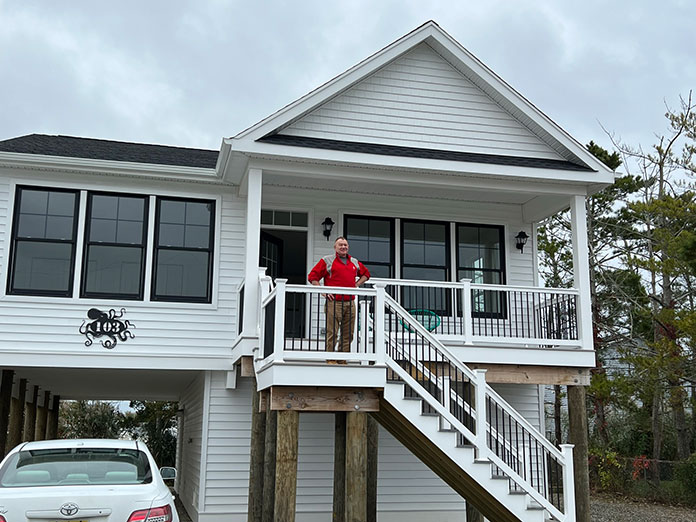
WARETOWN – The burden of rebuilding after Superstorm Sandy was nothing Tony Caira ever expected to do on his own. After all, his wife was a well-respected activist for Sandy victims – and someone Tony counted on as the “brains of the operation.”
Ten years after the unprecedented storm brought surging waters into their house, Tony now expects to finally be back home in the next couple of weeks. Yet, there’s something very empty about his return.
On November 30, 2020, Nancy Caira died from complications associated with a congenital heart problem. Months before her death, Nancy and Tony found the financial means to tear down and replace their damaged house. It was a momentous occasion that became social media worthy.
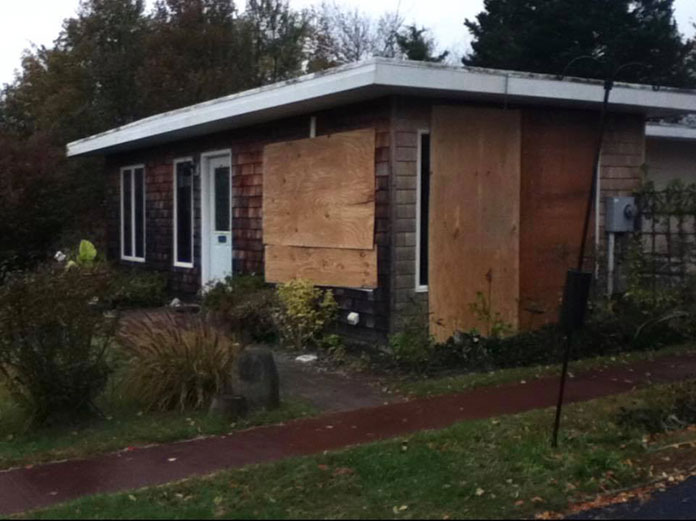
“It’s been 2,642 days since we lost our home to Sandy,” Nancy wrote on January 23, 2020. “Seven years, two months, three weeks, and two days. It’s been a long time. A long time living in suspended animation with more struggles, challenges, frustrations, and tears than I can ever count.”
Nancy insisted she was a Sandy survivor rather than a victim. Her fight for other survivors brought help to those who’d lost just about everything. She boldly interacted with state and federal legislators, who were taken in by her passion and emotional response.
Congressman Andy Kim (D-3rd) was among those who attended Nancy’s memorial service after her death and spoke of her dedication. He said she was a person who always fought for something that was bigger than her, rather than from just a place of self-interest.
“Ironically, the mortgage forbearance extension would not have happened if it wasn’t for Nancy Caira,” said Jody Stewart, who worked with Nancy as a member of the New Jersey Organizing Project. “Nancy gave Sandy families an extension of two years. She and I were running through the house halls trying to get legislators to vote yes on the bill up until the day before it expired.”
When Tony and Nancy bought their ranch style house, they picked something affordable that was exactly 125 steps from the edge of the Barnegat Bay. The couple certainly never dreamt that Sandy’s colossal force would give them a waterfront home – in the worst of ways.
“I was listening to the radio as the storm approached,” said Tony. “The commentators were making a joke and saying a ‘Frankenstorm’ was coming in.”
Tony said he was concerned that his wife’s condition would limit her mobility. He worried that he’d have issues helping her out if things got bad, especially because their pup, Gloria, would need assistance. He remembered how horrible it was when Katrina claimed the lives of people’s pets.
Friends who lived further inland agreed to take the family of three into their home. Little did anyone know that what was initially intended as a short stay, turned into months.
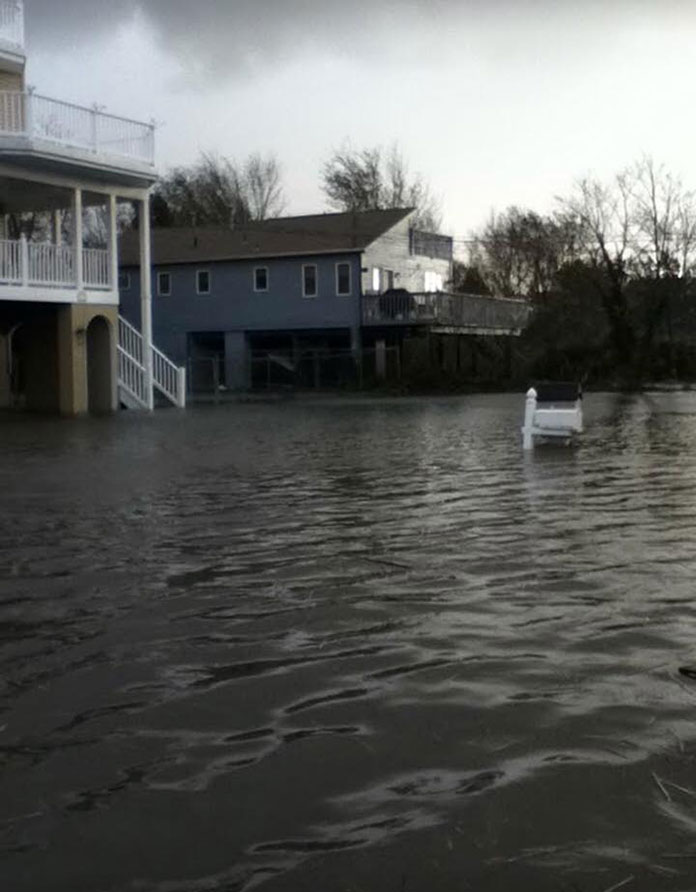
“It looked like a lake when I came back a couple of days later to check on everything,” Tony shared. “I was in up to my waist in the water with nine feet surges from the bay.”
Other than the images caught in photographs, one grim reminder stands as a record of the water outside the Caira residence. Tony pointed to a green mark in the fence that divides his new house from the one next door.
“The water came up to here at about two and a half feet,” said Tony. “I marked it with green spray paint.”
Nancy, who loved concerts and great music, tried to downplay the devastation. She even joked about an odd discovery that washed upon the couple’s lawn.
“Craziest thing of all,” Nancy shared, “A lone copy of ‘Greetings From Asbury Park’ found sitting on a pile of lumber and pallets that had washed up on our yard. Just sitting there, right on top of all the debris.”
While Nancy downplayed the amount of material things lost in the storm, she went to work making a claim with her insurance company. She could not believe she and her husband would only have $30,000 to completely gut their home and clean it out.
It turned into a bad nightmare with no hope of recovery. With little money, the next part made things even worse. The couple moved back into their damaged home and tried to make do. They then learned that their home address was now considered wetlands.
Not only did the Caira residence suffer significant structural damage, but its proximity to the water also required it to be raised on stilts. The biggest problem seemed insurmountable – where to come up with the funds.

In between advocating for other Sandy survivors, Nancy’s health continued to decline. She spent months in the hospital. The couple, who were just in their early 50s, were shocked when Tony suffered a heart attack. It was as if they just couldn’t win.
The string of bad news finally broke with a discovery by the New Jersey Organizing Project.
“NJOP found out that there was funding leftover from the Sandy recovery,” explained Stewart. “We went to the governor’s office and asked about the extra Sandy money. The state created supplemental funding programs of $50 million to fill in the cracks.”
A lightbulb seemingly went off in Nancy’s head as she decided she and her husband might be eligible for the money to get them out of a bad spot. It turned out her intuition was right – all that time helping others came with an unexpected reward.
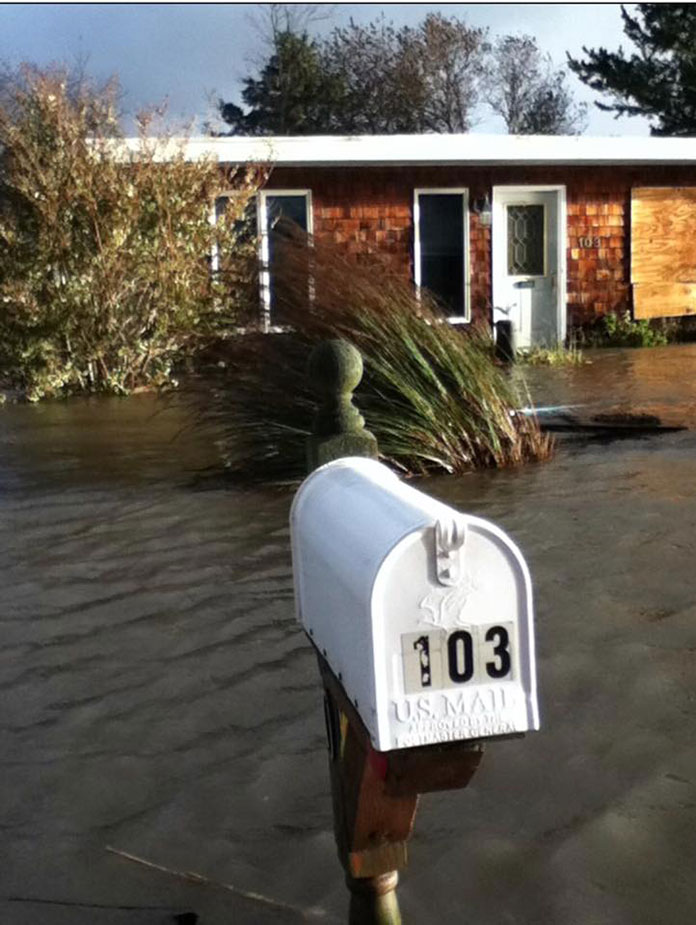
The new funding resulted in the husband and wife signing the contract for the home that Tony and Gloria will move into very soon. High up on stilts, a view of Old Barney can be seen from the porch, the house bears no resemblance to the one Sandy ripped apart.
An elevator from the storage beneath the house leads upstairs. It’s a grim reminder that Nancy’s condition meant she’d have a hard time getting up steps she’d never get to climb.
Tony’s had to chip in money of his own for different things he’s changed from the original floor plan, including a second bathroom and a granite countertop instead of a Formica one. All of his retirement benefits found their way into the project as material costs rose in the last two years.
As part of the agreement attached to supplemental funding, Tony must stay in the newly constructed house for five years before he sells it.
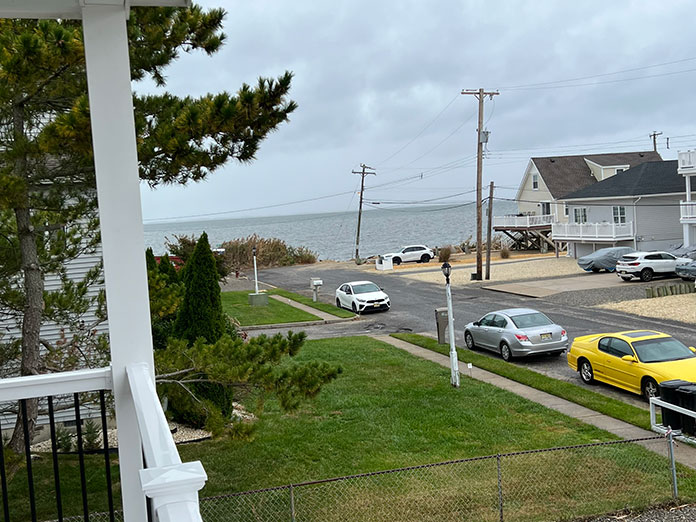
“Nancy was the numbers person,” Tony said as he nodded his head. “I still hear her voice.”






